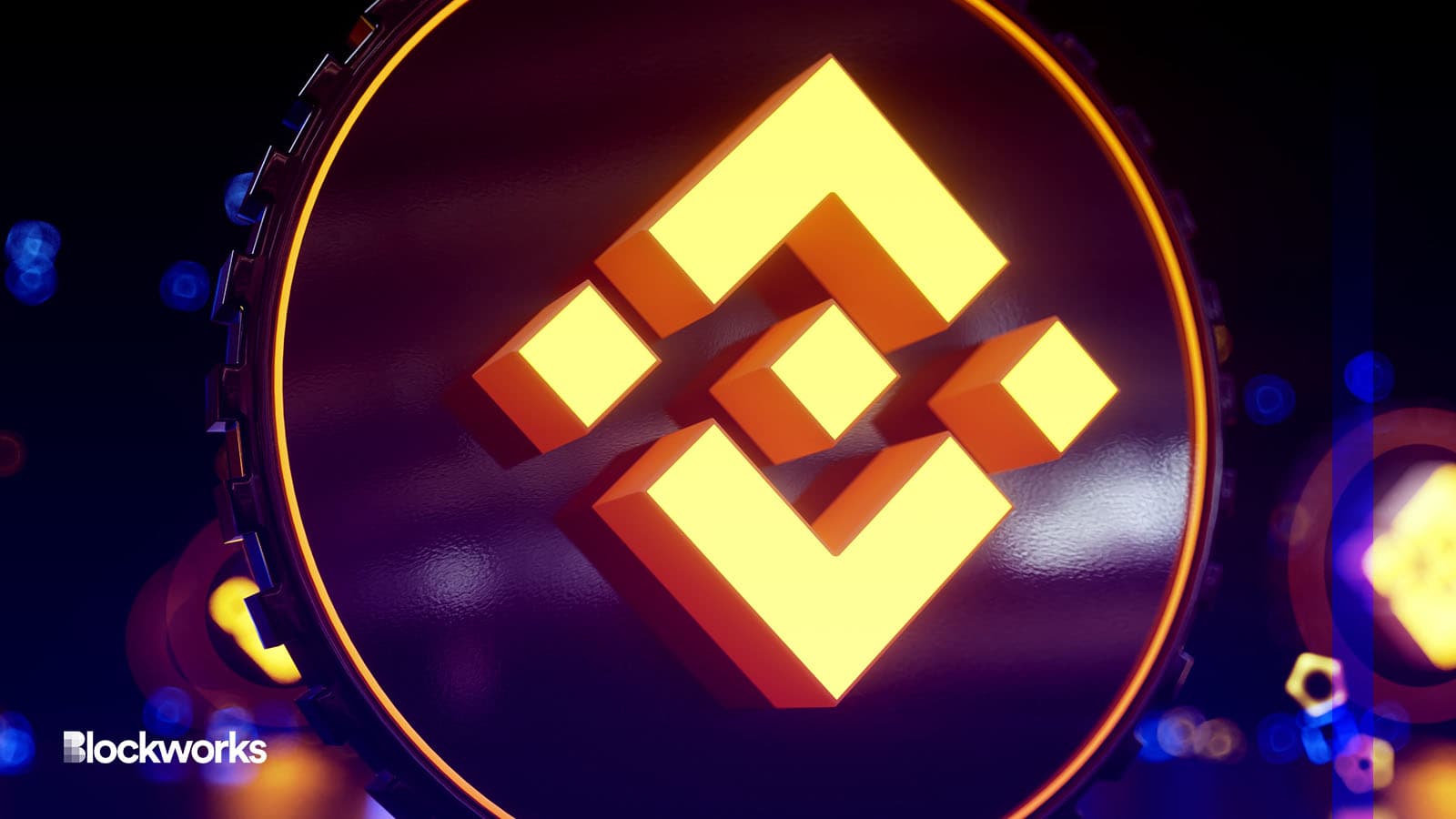Voyager’s VGX Jumps 40% Following Binance.US Takeover News
The deal, which has raised the concerns of at least two US regulators, is pending approval by a New York judge

Aleksandra Sova/Shutterstock.com modified by Blockworks
Bankrupt crypto lender Voyager has been given a legal nod for the $1 billion sale of its assets to Binance.US as part of its ongoing liquidation proceedings following its collapse last year.
News of the decision from US Bankruptcy Judge Michael Wiles sent Voyager’s VGX token soaring over 40% to around $0.43, its highest level since Dec. 6, 2022. But the move was short lived — as of 11:45 am ET Wednesday, VGX had given back roughly 20% at $0.36 per token, according to Coingecko.
VGX is a rewards token that can be used to pay for trading fees on the platform, among other features, as part of a loyalty program. The token once traded at an all-time high of $12.54 on Jan. 5, 2018.
About 60% of the token supply is held by Voyager itself, per data from CoinCarp, a market data aggregator.
Binance.US to purchase Voyager’s assets, provide liquidity
Judge Wiles, who allowed the deal to go ahead, is set to make a final call at a future court appearance alongside a vote to be conducted by Voyager’s customers as per the liquidation plan.
Voyager entered into the asset purchase agreement in December, with Binance.US proposing $20 million in cash and crypto that will be used to reimburse the lender’s affected customers.
Preliminary approval comes as the agreement between the pair was recently flagged, over national security concerns, by the US Committee on Foreign Investment in the United States (CFIUS), an inter-agency committee charged with reviewing such deals.
Voyager’s lawyer, Joshua Sussberg, said the lender intends to expedite CFIUS’s review of the deal, Reuters reported Tuesday. Per the report, Voyager estimates that its sale to Binance.US will allow customers to recoup 51% of the total value they had deposited on its platform.
Failing that, should the deal be blocked, the lender will be required to work with the digital assets it has, resulting in less money returned to customers overall, Sussberg said.
“We are coordinating with Binance and their attorneys to not only deal with that inquiry but to voluntarily submit an application to move this process along,” Sussberg said, per the report.
Pending approval, Voyager’s customers would be transferred over to Binance.US where they’ll be able to withdraw for the first time in more than six months.
The Securities and Exchange Commission also took aim at the deal last week, claiming Binance.US had failed to include relevant information in a disclosure statement.
Voyager fell on hard times in July of last year, filing for Chapter 11 bankruptcy less than a week after suspending trading and withdrawals following an entanglement with bankrupt hedge fund firm Three Arrows Capital.
Binance.US touts itself as a separate entity to the international Binance exchange, owned by CEO Changpeng Zhao, which has come under fire by regulators globally for having no fixed headquarters.
Macauley Peterson contributed reporting.
Get the news in your inbox. Explore Blockworks newsletters:
- The Breakdown: Decoding crypto and the markets. Daily.
- 0xResearch: Alpha in your inbox. Think like an analyst.






